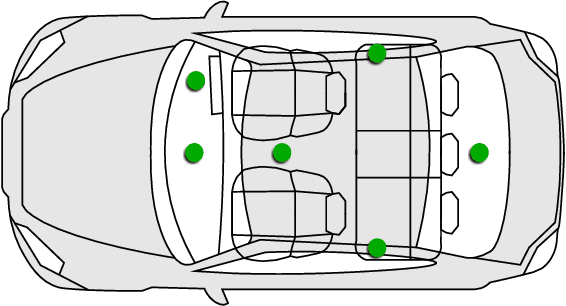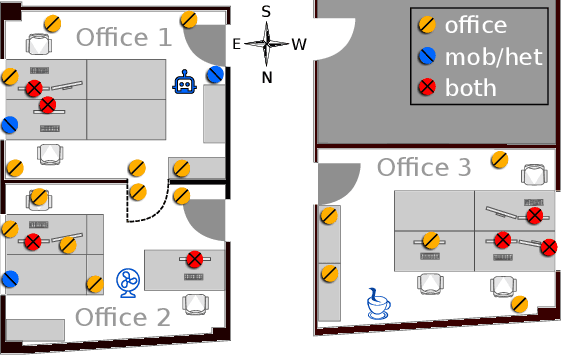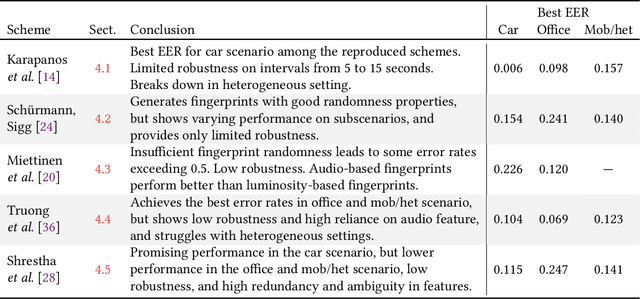Perils of Zero-Interaction Security in the Internet of Things
Paper and Code
Jan 22, 2019



The Internet of Things (IoT) demands authentication systems which can provide both security and usability. Recent research utilizes the rich sensing capabilities of smart devices to build security schemes operating without human interaction, such as zero-interaction pairing (ZIP) and zero-interaction authentication (ZIA). Prior work proposed a number of ZIP and ZIA schemes and reported promising results. However, those schemes were often evaluated under conditions which do not reflect realistic IoT scenarios. In addition, drawing any comparison among the existing schemes is impossible due to the lack of a common public dataset and unavailability of scheme implementations. In this paper, we address these challenges by conducting the first large-scale comparative study of ZIP and ZIA schemes, carried out under realistic conditions. We collect and release the most comprehensive dataset in the domain to date, containing over 4250 hours of audio recordings and 1 billion sensor readings from three different scenarios, and evaluate five state-of-the-art schemes based on these data. Our study reveals that the effectiveness of the existing proposals is highly dependent on the scenario they are used in. In particular, we show that these schemes are subject to error rates between 0.6% and 52.8%.
 Add to Chrome
Add to Chrome Add to Firefox
Add to Firefox Add to Edge
Add to Edge